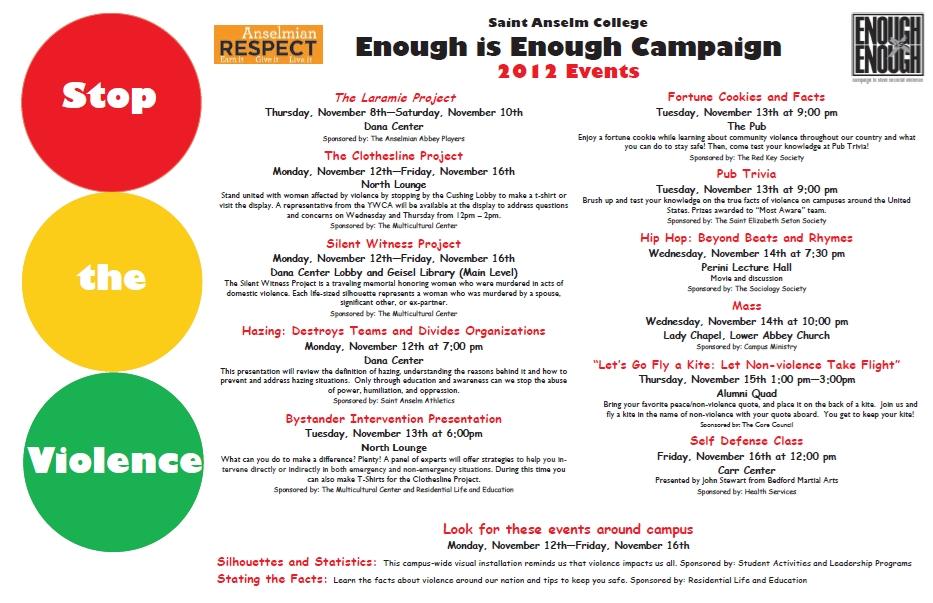In conjunction with the three performances of The Laramie Project by the Abbey Players this past weekend, the Enough Is Enough Campaign launched its yearly slate of events to draw attention to the dangers of abusive relationships and sexual assault.
I am a supporter of the Enough Is Enough Campaign, and I will continue to be one. Still, in reading their schedule of events and examining the attitudes of similar organizations, I’m noticing a trend that I think is worth challenging. Much of what the Enough Is Enough Campaign does is reactionary programming. This year’s offerings include a self-defense class, a presentation on bystander intervention, and the Silent Witness Project (a travelling memorial for victims of domestic violence). The sole prevantative program being offered is an anti-hazing intiative.
I understand and support the importance of teaching people (especially young women) to protect themselves, but I have to ask, isn’t there a better way? Instead of just teaching “how not to get raped or assaulted”, shouldn’t we also be teaching “don’t rape”? Then perhaps one day, organizations like Enough is Enough will cease to exist, not because people no longer care – but because there is no longer a need for them.
Despite all the good that Enough is Enough does, they are trapped in the same vicious, reaction-driven cycle that we all are. The unfortunate truth is this: teaching the mentality that domestic violence and sexual assault are simple facts of the world we live in, and the only way to halt such violence is with more violence, does little more than precipitate the problem. We must act first to stop the problems of violence and assault at their sources, rather than waiting for the offending action to take place.
In The Laramie Project, Father Roger Schmidt notes that “whenever someone calls you [a derogatory term], that is violence. You realize that, don’t you? That is violence.” And that, I think, is where one path to a permanent solution lies. We live in a society that has trivialized the importance of words. The importance of what we say is immense, and until we recognize that, nothing will change. Many argue that words only have as much power as we allot to them.
This is purely and simply false. The derogatory impact of someone using the n-word to describe an African-American, or calling someone a fag, cannot be reduced just because we say so. It is not a matter of sanitizing the words we use, or even giving them new meaning – it is a matter of striking those words down and eliminating them from the way we think, speak, and act.
This, then, is the first step to stopping abuse before it even begins. Teaching both men and women to think about what they say to others and how they allow themselves to perceive others, even in the silence of their own minds, I believe, can help halt the stereotypes, assumptions, and attitudes that predicate violence down the road.


